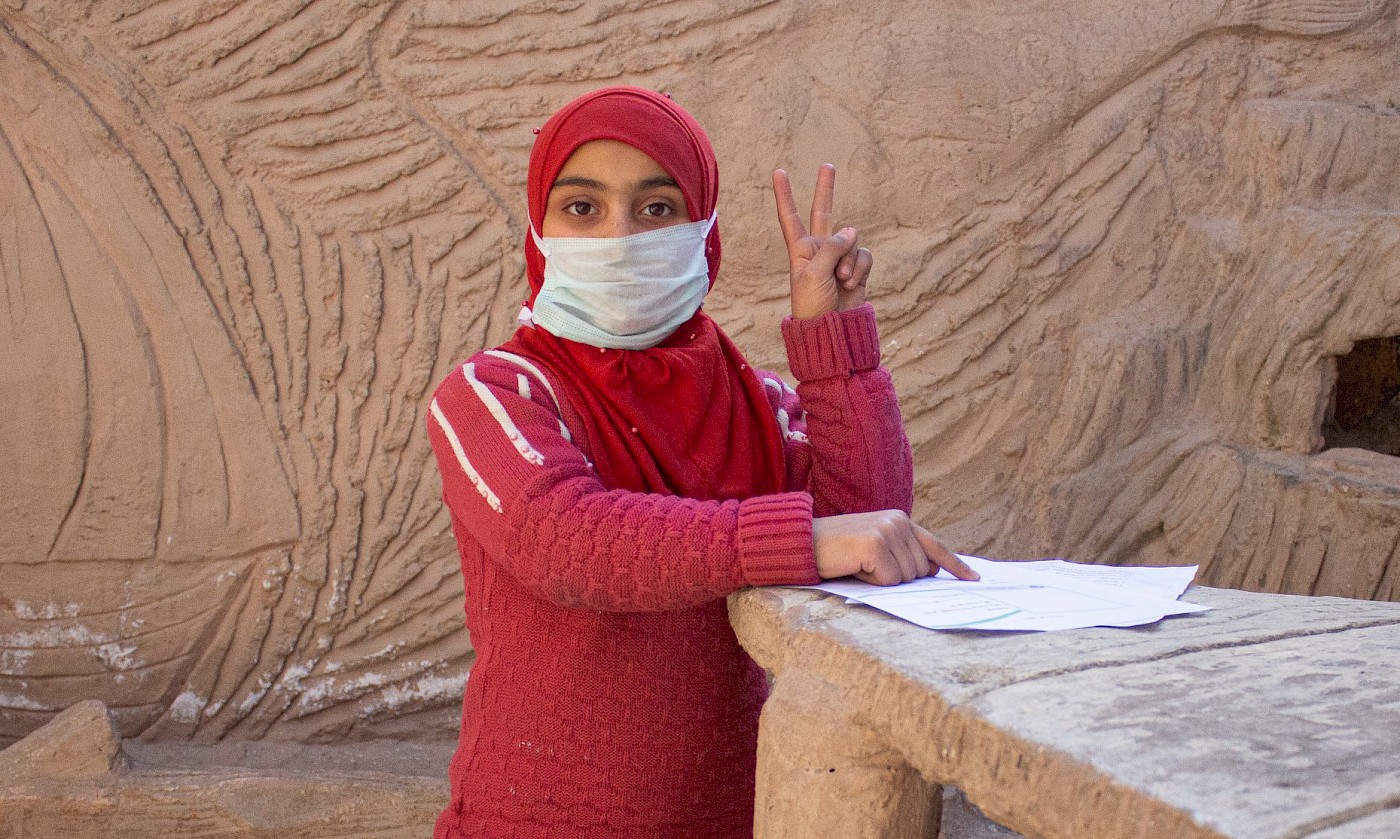Every 8th of March we talk about women’s rights, yet in 2021 education is still a dream for some 132 million girls around the world. The situation is even more serious when we focus on the refugee population: the Covid-19 crisis has worsened an already dramatic picture. It is estimated that 48% of refugee children in the world – even in the pre-pandemic era – had no access to education. There is a significant gap between primary and secondary education. While primary education is attended by 77% of refugee children, secondary education is attended by only 36% of boys and 27% of girls. And now, as soon as the various lockdowns are over, half of these adolescent girls may never return to school (UNHCR data, 2020).
ENSURING EQUALITY STARTING IN SCHOOL
«We don’t need anything more than what should already be ‘average’ or normal, in order to build a better world today», says Michele Senici, Education Director at Still I Rise. «In the classrooms of all our schools around the world, we bring high quality education regardless of gender. By ensuring that 50% of our students are girls, and through targeted activities, we fight discrimination. Our aim is a world where every girl child is treated with justice and respect».
This non-profit organization has provided education and protection of refugee children since 2018, through active operations in Greece, Turkey, Syria and Kenya. Special attention is given to girls and young women’s needs and requests. In order to do that, Still I Rise creates spaces for listening and interaction where they can feel free and welcomed. «Every week we dedicate an exclusive club to girls, where they can seek answers to their questions and doubts, without feeling judged or hurt. There are countless books that we offer to acknowledge the women who have built and changed the world».
An important part of the lessons covers hygiene and sex education, as well as women’s rights and the importance of consent. In this way, each girl becomes aware of her fundamental rights, and is encouraged to seek help if her voice is not heard. In each class, two representatives, one male and one female, are elected. They are responsible for communicating to the staff any doubts, problems or proposals to improve the school and its activities, together.
«The girls also have a Child Protection Officer with whom they can have sessions and be supported emotionally and otherwise», adds Racheal Wanjiru, principal at Still I Rise International School in Kenya. «In each of our school programmes, we aim to empower girls so that they gain more confidence in themselves and their abilities. Female teachers make up 80 percent of the staff at our school in Nairobi, and we take them as a role model. The message we try to convey is that, through study, every girl can have her own job and be empowered to become whatever she dreams of».
THE CAUSES OF THE PHENOMENON IN THE WORLD
Poverty, child marriage and gender-based violence – such as female genital mutilation – are among the most common causes of girls dropping out or not entering school worldwide. Other causes include the tendency to favour boys in accessing education and school facilities seemingly incapable of responding effectively to the specific hygiene and protection needs of girls.
Yet investing in girls’ education is more urgent and crucial than ever. According to a World Bank study (2018), women with a secondary education are more likely to earn more and also to have a better quality of life for themselves and for their communities. In this way, there are improvements in social capital, independence, general health and well-being, as well as a decrease in early marriage and pregnancy.
In addition, other research shows that every additional year of education received by a woman can reduce the chance of infant mortality by 5-10%. Education saves lives and is the first fundamental step towards truly equal human rights.
Watch the video: The struggle of Nahid, 14-year-old girl, for the right to education of girls and young women


